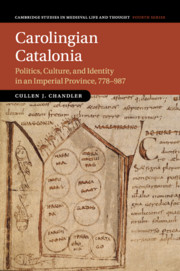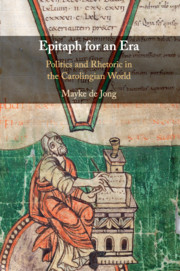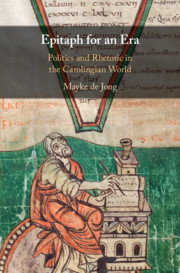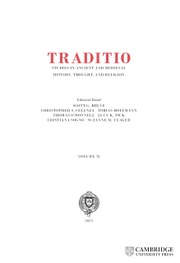Carolingian Catalonia
Drawing on a range of evidence related to royal authority, political events and literate culture, this study traces how kings and emperors involved themselves in the affairs of the Spanish March, and examines how actively people in Catalonia participated in politics centred on the royal court. Rather than setting the political development of the region in terms of Catalonia's future independence as a medieval principality, Cullen J. Chandler addresses it as part of the Carolingian 'experiment'. In doing so, he incorporates an analysis of political events alongside an examination of such cultural issues as the spread of the Rule of Benedict, the Adoptionist controversy, and the educational programme of the Carolingian reforms. This new history of the region offers a robust and absorbing analysis of the nature of the Carolingian legacy in the March, while also revising traditional interpretations of ethnic motivations for political acts and earlier attempts to pinpoint the constitutional birth of Catalonia.
- Presents a general and analytical overview of the history of the Carolingian Spanish March
- Revises traditional interpretations of the early political and constitutional history of Catalonia
- Explores the concept of identity in the Early Middle Ages
Reviews & endorsements
'To the Franks, Catalonia was the province that got away, while to the Crown of Aragon the area brought cultural and commercial contacts from beyond the Pyrenees and into the Mediterranean. Chandler studies the central influence of the Carolingian rulers on Catalonia, not to illustrate the creation of sovereign nationhood on the advent of the Capetians, but to illuminate the area as a component element of Charlemagne’s empire. Recommended.' L. C. Attreed, Choice
Product details
April 2020Paperback
9781108465199
337 pages
150 × 230 × 20 mm
0.53kg
1 b/w illus. 3 maps
Available
Table of Contents
- Introduction
- 1. Gothic Catalonia and Septimania to 778
- 2. Creating the Spanish March, 778–840
- 3. March and monarchy, 840–878
- 4. Counts, church and kings, 877–947
- 5. Learned culture in Carolingian Catalonia
- 6. The March toward sovereignty? (947–988)
- Conclusion: Carolingian Catalonia, 778–988.






.jpg)
.jpg)
